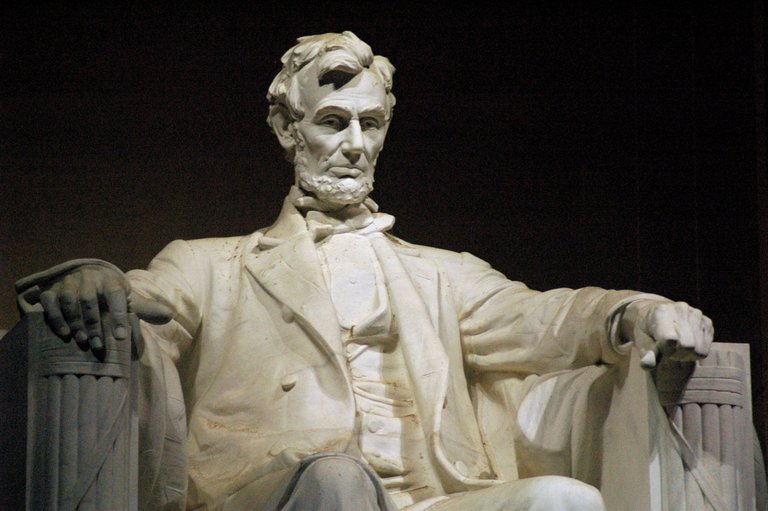One of the nation's greatest American presidents was Abraham Lincoln. He is remembered mostly for preserving the Union during the Civil War, for ending slavery and for paying the ultimate price, at just the exact moment in time when the war was ending and the Nation's healing process was beginning.
At his his Inaugural Address he stated to the South, "You have no oath registered in Heaven to destroy the government, while I shall have the most solemn one to preserve, protect and defend it." His deep commitment to save the Union, kept the country united but cost him his life.
The road to the White House was one of self-education and hard work for Lincoln. Born to a typical working-class farming family, he lost his mother at the age of eight and moved several times in his youth, from Kentucky to Indiana, and finally to Illinois. He was a captain in the Illinois militia during the Black Hawk War in Illinois, but did not see action fighting the Indians who revolted over a treaty that moved them off their lands for little compensation. Lincoln became a lawyer, and practiced in Illinois. He was later elected to the Illinois legislature at the age of only 25, and served for eight years.
He then ran for Senator of Illinois, but lost to the great orator and Democrat Stephen A. Douglas, but in the process, gained a national reputation.

At 37, he was elected to Congress for just one term, where he fought to abolish the slave trade in the District of Columbia, although it continued for another 4 years. He lost elections to the U.S. Senate in 1854 and 1858 under the new Republican party. During one of his acceptance speeches for one of the nomination, he uttered the now famous paraphrasing of the Bible passage (Matthew 12:25), "A house divided against itself cannot stand," concluding, "I believe this government cannot endure permanently half slave and half free." He went on to win the Republican nomination for President in 1860 and by the time he took office in 1861, seven Southern states had already seceded. Just over four years later, he would be dead. At Ford's Theatre you can still view the flag-draped box where John Wilkes Booth fatally shot the President while he watched a play in 1865, just days after General Lee surrendered to General Grant at Appomattox. In just 9 years, the Lincoln Memorial will celebrate its centennial.
The Memorial's architect Henry Bacon, teamed with the sculptor of the Lincoln statute, Daniel Chester French, who is also known for many sculptures around the East Coast, including the Concord Minute Man in Concord, MA and for designing the Pulitzer Prize gold medal. Together with Jules Guerin, the man who painted the interior murals of the memorial, the memorial is one of DC most visited and majestic monuments, especially at night. Lincoln Memorial
Lincoln Memorial Circle Southwest
23rd St. NW, between Constitution and Independence Avenues
Washington, DC (map it) Dates and Times - open daily, 24-hours. National Park Rangers are on duty to answer questions from 9:30 a.m. until 11:30 p.m. daily.
Free 45-minute Ranger led talks about the qualities made Lincoln great occur every Tuesday afternoon at 4:00 p.m., through the end of November.
Tours - Cell phone tours with recorded Ranger talks are available by calling 202-747-3420 (airtime charges may apply).
Tickets - Admission is free.